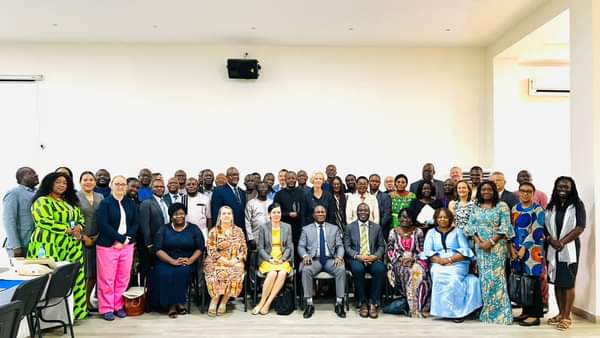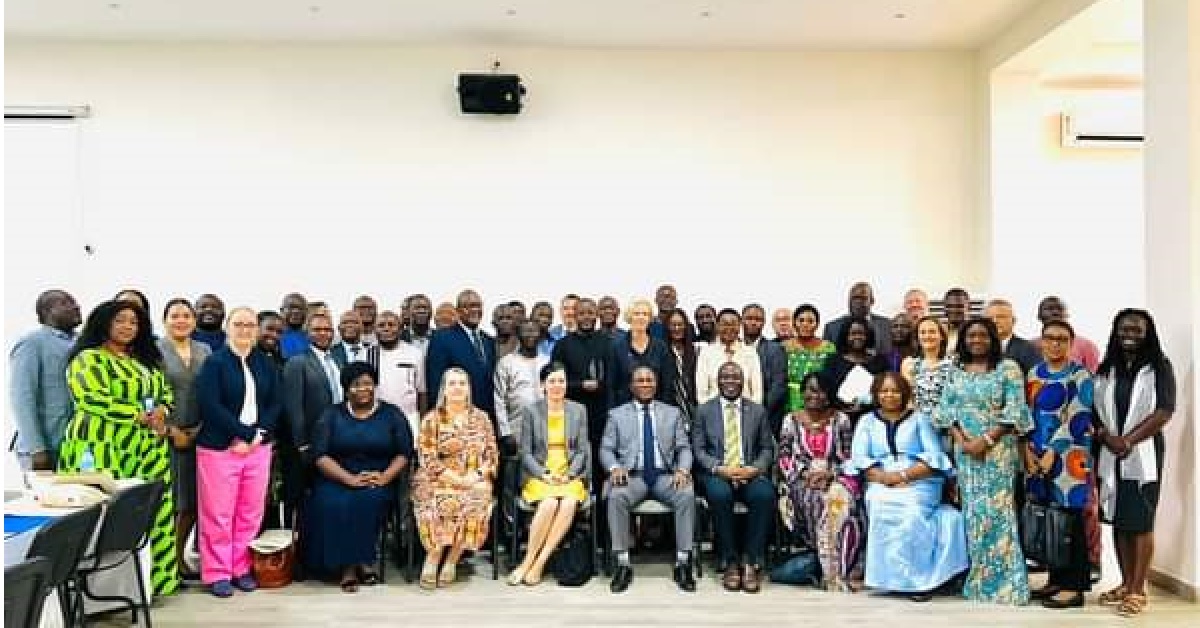The Ministry of Planning and Economic Development, has today in collaboration with the United Nations Resident Coordinator’s Office has conducted the 3rd Ministerial Development Partnership Committee (DEPAC) quarterly meeting held at the New Brookfields Hotel in Freetown.
This meeting was a continuation of the dialogue session between Sierra Leone Government Minister’s and Development Partners with the theme: ‘Emergency Preparedness and Resilience as Key Strategic components of National Development Efforts’.
In his welcome remarks, as Co-Chair, the Minister of Planning and Economic Development, Dr. Francis Kai-Kai said that the discussions have come at a time when the country has recently experienced emergencies and disasters— citing the Wellington fire to the floods and mudslides that have led to loss of precious lives and properties.
Dr. Kai-Kai said the session would enable the Minister of Health and Sanitation and the Lead from the Ministry of Environment as well as National Disaster Management Agency to focus on efforts at prioritizing emergency preparedness in policy making across sectors and the strategies and interventions in place for ensuring national resilience to natural disasters and public health threats.

“I am very confident that our discussions will lead us to a pathway in developing robust and functional national emergency early warning and monitoring systems. I believe the recommendations will better address the vulnerabilities that lead to disasters and resilience and adequate response mechanisms to adopt when such disasters do occur”, Minister Kai-Kai said.
Dr. Babatunde Ahonsi, UN Resident Coordinator, in his statement, thanked the President Bio-led Government for establishing the National Disaster Management Agency (NDMA), especially as Sierra Leone was considered as one of the most vulnerable countries in the world in terms of health and climate-related emergencies and disasters.
He said the NDMA was a key government tool for disaster management as well as linking humanitarian action and development. Dr. Ahonsi ended by emphasizing the need for Sierra Leone to centralize emergency preparedness and response in order to actualize its development aspirations and progress towards the Sustainable Development Goals (SDGs).
The World Bank Country Manager, Abdu Muwonge said the World Bank as the global leader in disaster risk management would continue to support client countries to assess exposure to hazards and address disaster risks.
In his presentation, the Minister of Health and Sanitation (MoHS), Dr. Austin Demby stressed the importance of existing partnerships and synergies with national and regional institutions as a key component in disaster and health emergency preparedness and resilience.
He highlighted the mechanisms the MoHS has in place for disaster/emergency preparedness also noting the policy priorities and context as well as the challenges and recommendations of disaster and health emergency preparedness and resilience.
The Deputy Director, NDMA, John Vandy Rogers, as the leading discussant explained their role as a constitutionally established institution mandated to implement government policy on disaster prevention, disaster risk reduction, and climate risk management and to deal with a whole spectrum of disasters and management in Sierra Leone.
John Rogers emphasized on the importance of their coordination mechanism with the aim to ensure a safe and resilient nation in which communities, the economy and the environment are better protected from negative impacts of hazards, through appropriate and comprehensive Disaster Risk Management strategies.
The representative from the Ministry of Environment also presented on their Ministry’s mechanisms in place for Disaster and Emergencies preparedness, context and policy priorities, partnership structure, challenges and proffering recommendations in the environmental context.
During the discussions, participants such as the EU Ambassador, Manuel Müller, Development Focal Persons from the Foreign Commonwealth Development Office, Irish Embassy, UN Agencies, NGOs, Government Agencies, the Private Sector and other development partners gave their perspectives and proffered recommendations on Emergency Preparedness and Resilience as key strategic components of national development efforts.











